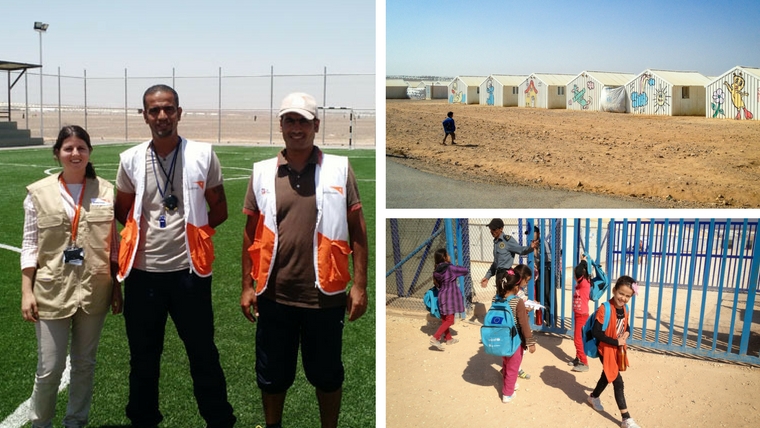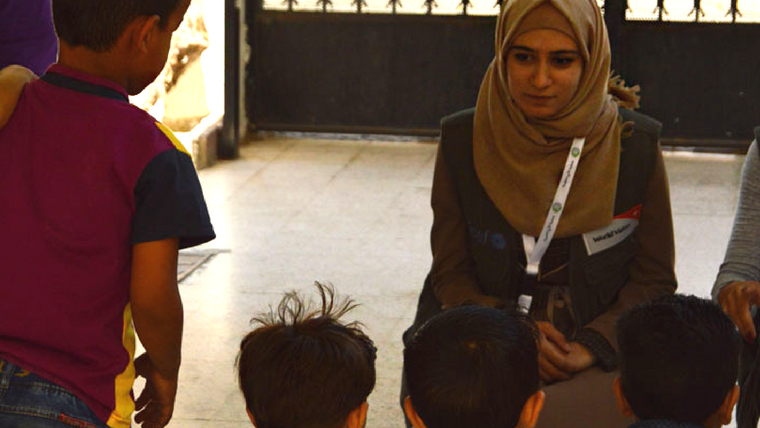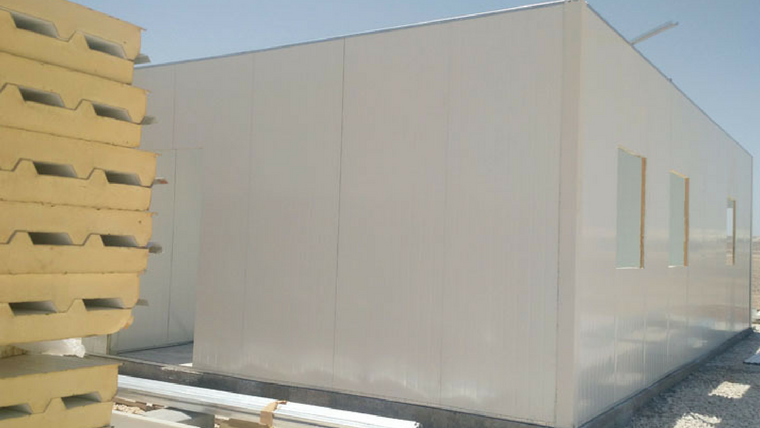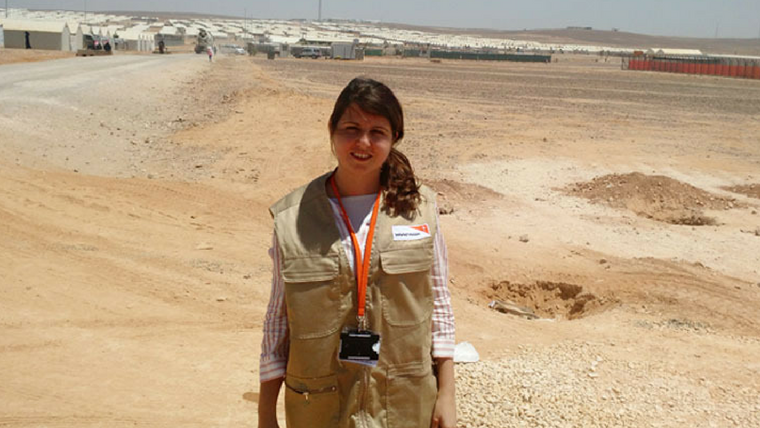Hope in the eyes of Syrian refugee children | Education in Emergencies

By Soraya Khajehpour, Humanitarian Information Officer, World Vision UK
“Our message today is not that children need education even in emergencies, it’s that children need education - especially in emergencies,” - Queen Rania of Jordan at the 2013 Education Cannot Wait event.
Arriving at Azraq Refugee Camp in Jordan, in the middle of a dusty hot desert that seemed to go on for miles, I was acutely aware of my proximity to the Syrian border and all that was happening just a short drive away. Reading about the conflict in Syria is upsetting enough; being so close as I drove through the security checkpoints and barbed wire fences was an altogether different experience.
I have always been dedicated to providing children with the best start in life; worked with street children in Mexico, internally displaced children in Colombia, nursery children in China, as well as being an early years teacher here in the UK, but I had never seen a refugee camp or a child friendly space. I was extremely privileged to have seen our child protection and education in emergency work in Jordan, and it was incredible to see how my small contribution and your donations support the work that our teams are doing.
Hope and happiness

On my first day in Jordan I visited one of our Makani, meaning ‘my place’, centres in Amman, where children receive informal education, psychosocial support and life skills training. The first thing that struck me when I entered the courtyard and saw the children playing numeracy skill games, was the hope in their eyes. Despite the hardship they may have been through, the violence they may have witnessed, and the arduous journey they had taken to leave their homes and travel to Jordan, the hope and happiness radiated.
Through these centres World Vision is working in partnership with UNICEF and the Ministry of Education to provide learning opportunities to 5,000 children aged 6 - 14 who aren’t currently in any form of education. It is estimated that there are more than 916,000 (56%) of school-age Syrian refugee children outside of Syria that are out of school (April 2016).
It was heart-warming to meet these children from Syria, Jordan and Afghanistan, with their laughter and singing as they waited for the bus to take them home. The aim is for at least 20% of the children attending Makani to then be registered in formal education. We know that being in school can keep children safe and protected from risks, including gender-based violence, recruitment into armed groups, child labour and early marriage.
Curiosity and wonder

Day two at Azraq: I saw the construction of the kindergarten being built by World Vision, which will teach 600 children aged between four and five and prepare them for formal education. Some children were looking on at the construction vehicles with delight; I recalled my time as an early years teacher in the UK and how cement mixers and diggers captivated children with the same innocent curiosity and wonder.
A few images from Azraq will stay with me; queues of children with a thirst for learning waiting eagerly outside the non-formal school, two young boys leaning on the fence staring towards out across the vast desert with a football in their hands - what must they have been thinking or remembering, where they looking toward Syria? A young boy of about eight whizzing down the long roads of the camp on his roller-skates, a look of sheer exhilaration on his face. A young boy pushing a lady in a wheelchair, perhaps his mother, on those same dusty roads and thinking of how much harder the journey must have been for them.
No lost childhoods

On my final day in Jordan, I met a group of Syrian refugee women. One mother told me how traumatised her daughter was when first they first arrived in Jordan. At just one-years old, she would cry constantly making her mother cry too. She started to take her daughter to nursery some time later and, after settling into her new environment, her daughter began to smile and engage with the other children.
“All I want is for my children to be educated. To teach them that they are not lesser-human beings, that they can have opportunities for their future and, more importantly, I want them to always be good and kind to others,” she told me.
Since returning to the UK, I have been reflecting on the importance of education for refugee children in these formative years, given that by the age of five 90% of our critical brain development will have occurred. This happens at an astonishing rate of 700 new neural connections every second in the first few years of life. It is a crucial time for children developing their social, emotional, cognitive and language skills, greatly shaping their personalities and life chances.
Refugee children, who are five times less likely to attend school, deserve the opportunity to learn and grow, to rebuild their lives, and to have a bright future. These children will be the doctors, engineers and teachers who will set the foundations to restore Syria, and its society. In the words of Nobel Peace Prize Winner, Malala: “Let us become the first generation that decides to be the last to see lost childhoods, and wasted potentials.”
With your donations, you are helping to support children's education and early life experiences, not only in Jordan, but in other countries. So much more needs to be done. Please support our Syria Crisis Appeal. You can find out more about our work in Jordan, Syria, Iraq and Lebanon here>>